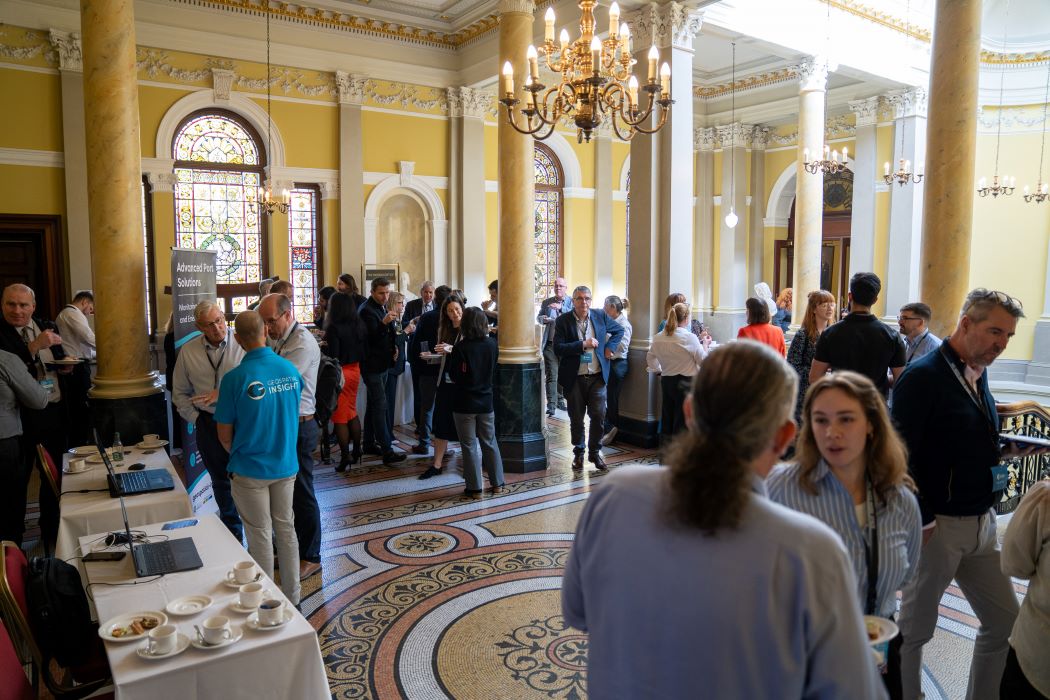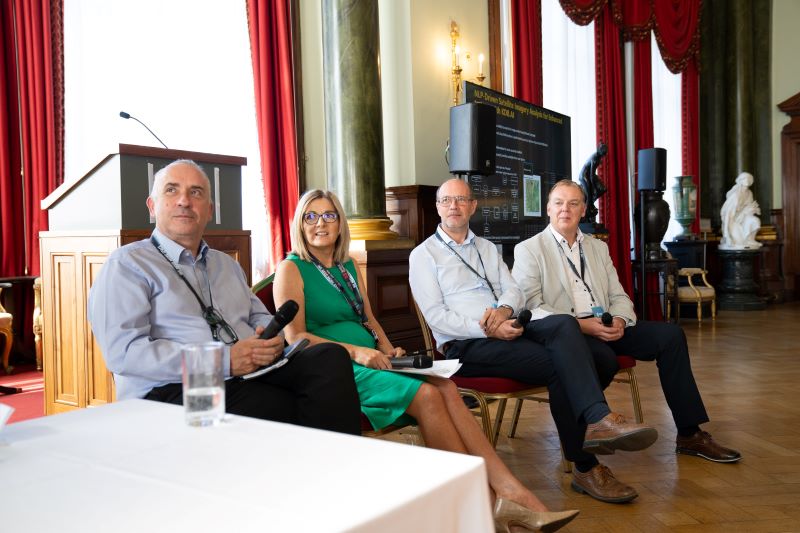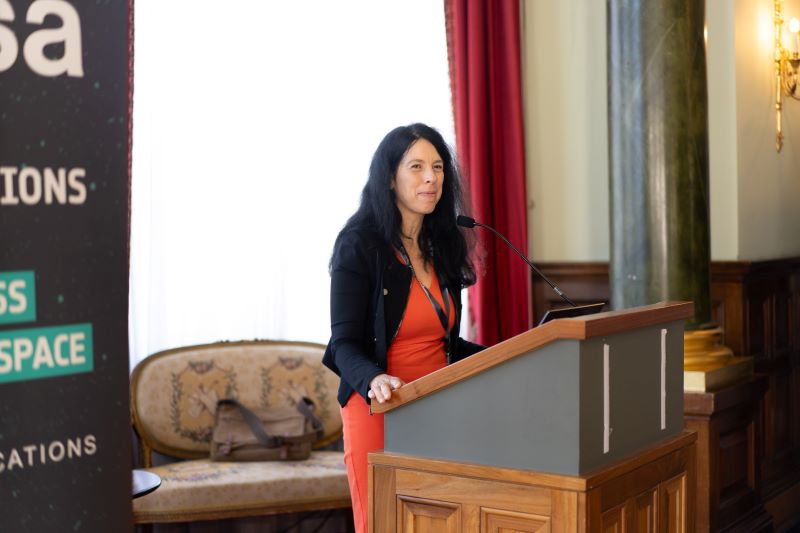
Belfast Harbour was the scene of a very different kind of launch this week as it played host to the European Space Agency (ESA)’s first Port Decarbonisation and Environmental Sustainability Workshop. The one-day event, hosted jointly by Belfast Harbour, ESA’s Business Applications and Space Solutions (BASS) programme, Redshift Associates and the UK Space Agency, saw experts from across the maritime and space sectors in Europe come together against the backdrop of the historic Port of Belfast to discuss the most pressing issues facing the sector today.
With increasing challenges from climate change and new regulatory requirements around decarbonisation across the maritime sector, the workshop focused on the role of space technologies in the green transition for ports around Europe, especially around the digitilisation of port operations on the path to net zero.
Opening the event for ESA, Geraldine Naja, Director of Commercialisation, Industry and Competitiveness (CIC), emphasised how the maritime sector is a key priority for the ESA’s Business Applications and Space Solutions (BASS) programme, evidenced by the launch of the Maritime Sustainability Task Force in January this year. “The Task Force brings together an impressive list of key players across the maritime sector to create a favourable framework to define, develop and effect the activities in which ESA is investing” said Ms Naja in her address. “The promotion of sustainable shipping and sustainable maritime development is one of our key priorities, together with maritime safety and security, maritime traffic management and the provision of ubiquitous connectivity necessary for a green and sustainable global maritime transportation system.”
Digital solutions
With more than 100 completed projects in the BASS maritime portfolio, the focus of the workshop was very much on identifying how the space sector is helping solve many of the issues faced by ports. Several successful projects were showcased at the event, including Sinay’s Digital Port Platform, which uses space assets and advanced AI technologies to provide insights into vessel arrival times, optimal shipping routes, water quality changes and potential pollution events, and GSI UK’s CACHE Net Zero project, which can deliver environmental sustainability and energy efficiency for global ports & port stakeholders.
Chris White-Horne, Deputy CEO & Chief Delivery Officer at UK Space Agency who spoke at the event, said “The fight against the climate emergency relies fundamentally on space. More than half of the 50 most useful variables for assessing climate change are obtained through the unique vantage point of satellite data. This important event at Belfast Harbour is key to the UK Space Agency’s mission to protect the planet and outer space. We are looking forward to exploring the ways we can address port decarbonisation, more efficiently use ports via space data, and how we can work together to tackle the unique environmental challenges in the maritime industry.”

Autonomous vehicles
Although the maritime sector accounts for 3% of all global emissions, the challenge facing port decarbonisation is complex, as the port authorities themselves are responsible for only a tiny percentage of the total port emissions, which are largely attributable to port services and shipping. Delegates heard how Seafar NV are developing semi-autonomous vessels to combat both rising costs and emissions and UK-based company Darwin Innovation Group shared how their successful collaboration with ESA BASS has enabled them to deploy a pioneering connected and autonomous vehicle (CAV) service which can help reduce road emissions within ports and harbours.

Professor Alan Wells, Redshift Associates Founder, commented “the exciting technologies and innovations that we have heard about today are offering new opportunities for ports to decarbonise by reducing their greenhouse gas emissions, measures that also improve their local air quality. Ports require reliable and up-to-date data in a clear and coherent form to track the impact of their decarbonisation and clean air strategies. Space-enabled services for modelling and monitoring emissions are being adapted to meet the needs of the ports and their stakeholders.”

Rita Rinaldo, Head of Applications, Projects and Studies Division at ESA who outlined the opportunities offered by space technologies for the green transition of the maritime sector at the event, said “We are very happy to be in Belfast and to showcase the important work ESA is doing in the sector to hasten and facilitate port decarbonisation around the world. Just a few months after we launched the Maritime Sustainability Task Force in Marseille, I am delighted to announce, here in Belfast, the formation of a dedicated ports working group with stakeholders from across Europe, dedicated to addressing the specific needs of ports.”
The choice of Belfast Harbour for this important event was no coincidence. The Harbour has been an active user of space-based services since 2018 and is a leading industry partner in ESA’s CACHE Net Zero project, supported by Redshift Associates and Bable GmbH.
Laura O’Neill, Digital Transformation Manager with Belfast Harbour, who spoke about how Belfast Harbour is using 5G to revolutionise its port operations at today’s event, said “We are delighted that Belfast Harbour was chosen as the venue for the first ever workshop of this kind to be organised by ESA. It is also great news for the city and region. The event gave us the opportunity to showcase the work we are doing within our Port and our Estate to an audience of key experts who can offer new insights and advice into how we can continue our journey towards becoming a net zero organisation.”
Find out more about ESA's work in the maritime sector
Sign up for our Maritime Bulletin


